Musician Lu Nhat Vu signed a book for Secretary of the Ho Chi Minh City Party Committee - Nguyen Van Nen (Photo: Trinh Binh)
Musician Lu Nhat Vu's real name is Le Van Gat, born on April 13, 1936 in Thu Dau Mot town, Binh Duong province. He is a former member of the Secretariat of the Vietnam Musicians' Association, term III; Deputy General Secretary of the Ho Chi Minh City Music Association (1981), former Director of the Vietnam Institute of Culture and Arts in Ho Chi Minh City. He was awarded the 45-year Party membership badge, the State Prize for Literature and Arts (first term, 2001); the First Class Anti-American Medal; the Second Class Victory Medal; the First Class Labor Medal and many other awards.
As a child, musician Lu Nhat Vu was taught culture by two teachers, musician Le Thuong and musician Pham Duy Nhuong. Knowing that he wanted to learn to compose music, the two teachers advised the musician to try to improve his education. The two teachers thought that music was very abstract, very "supernatural", it was only suitable for the "spirituality" of some people (later, when the country was unified, Lu Nhat Vu met teacher Le Thuong again and was congratulated by him: Who would have thought that his student's spirituality was also suitable for the music profession). During this time, the musician got to know a revolutionary brother. This brother copied some poems for him. He immediately bound a beautiful notebook, copied each stroke of the struggle poems and did not forget to carefully draw the red flag with a hammer and sickle right at the top. From those fiery revolutionary lines, he was urged to write his first verses. Then one day he received information that the Dan Ta newspaper in Saigon published his poem “Mọ chien sinh” (Soldier’s Grave) under the pen name Lu Phong: “I remember this place where soldiers’ graves are/ The past bravely stepped on the fire of war/ The heroic spirit of fighting drunk with weapons/ Blocking the waves of invasion to save the innocent people…”. From the first poem, he continued to create the following poems. But composing was not enough to satisfy his “craving”, he began to gradually explore the world of melody and not long after that, he created his first song called Bài ca thay thay (Farewell Song). The musical theme of this song was nurtured by him for 26 years, until in 1978, he wrote the famous song “Bến tuong đại Bác Hồ”.
After the Geneva Agreement (1954), Lu Nhat Vu gathered in the North with a small luggage of two first works, which were the song "Farewell Song" and the poem "Mortal Grave of Soldiers". Although his teachers assessed that it would be difficult to succeed in music, he was not discouraged and continued to study hard, practice, and pursue his passion. In 1962, he graduated from the Composition Department of the Vietnam Music School (now the Hanoi Conservatory of Music), then returned to the South with his "brainchild" born in the North, "Saigon Girl Carrying Ammunition". He worked in the Southern Song and Dance Troupe. In 1970, he returned to the Southern battlefield, worked in the Liberation Arts Subcommittee, and operated in the Southwest battlefield. Musician Trinh Hung - former Chairman of the Literature and Arts Association of Long An province, said that he had spent time in the same unit, as a junior of musician Lu Nhat Vu at the Tay Ninh forest base. According to musician Trinh Hung, musician Lu Nhat Vu is a calm, sincere person who always cares about the people around him. “When interacting with musician Lu Nhat Vu, not only me but all of my fellow writers and artists can feel his sincerity towards everyone, especially the younger generation. That makes me always admire musician Lu Nhat Vu” - musician Trinh Hung shared.
The work "Learning about Southern folk songs" by musician Lu Nhat Vu and poet Le Giang (Photo: MH)
In his composing career, musician Lu Nhat Vu left behind a huge legacy with many works in many genres. The musician composed from songs, children's songs, epics, choirs to musical scenes, dance music, stage music, animated film music and solos,... with many styles, creating diversity and richness in the language of the southern music region of the country. His composing career has many famous works such as Khuc hat nguoi di khai rai, Bai ca dat phuong nam, Ben tuong dai Bac Ho, Hay yen long me oi, Chieu tren ban Meo, Co gai sai Gon di tai am,...
During his lifetime, musician Lu Nhat Vu said that many people considered the number 13 to be unlucky, but for him, the number 13 was a lucky number! Not only was he born on the 13th, many milestones in his life and career were also related to the number 13. Notably, Directive No. 08-CT/TW of the Secretariat on cultural and artistic work during the period when the whole country was moving towards socialism, signed on April 13, 1977, reminded him to "urgently carry out the work of collecting, researching, and objectively and deeply evaluating all the cultural assets of the ethnic groups in the whole country...", which would apply to him forever after. The birth of Directive No. 08 tied the fate of musician Lu Nhat Vu to the work of collecting and researching folk songs with his life partner, poet Le Giang. Many of his famous works include: Studying Southern Folk Songs (1983), Vietnamese Folk Songs in the South, Lu Nhat Vu Song Collection, Music and Life; 300 Southern Ly Melodies, Ho in Vietnamese Folk Songs, Vietnamese Lullabies, Ly in Vietnamese Folk Songs,... have become valuable assets for future generations.
The work Music and Life was edited by musician Lu Nhat Vu and poet Le Giang (Photo: MH)
Talking about his career, musician Lu Nhat Vu once confided in the work Music and Life (edited by him and poet Le Giang) that he was usually generous in spending, but in composing he was extremely frugal with his capital and sparing with his melodies. He thought that the musical themes he had accumulated during the war not only had to be paid for with sweat and tears but also with blood and life. Therefore, a musician cannot empty his pockets for a work and then become destitute, even struggling to borrow money for subsequent works. Musicians should also know how to "account" for capital for expanded reproduction, not being greedy, wasteful, or extravagant with themes in a mass way.
According to many writers and artists who know musician Lu Nhat Vu, he is a diligent, hard-working person who works tirelessly and creatively regardless of the circumstances or conditions. Through his works, the musician has portrayed “The Southern land of blue sky, white clouds, clear water” and “the simple, rustic, and honest Southern people” as he himself is - a musician of the Southern region./.
Bao Linh
Source: https://baolongan.vn/nguoi-nhac-si-cua-vung-dat-nam-bo-a192898.html


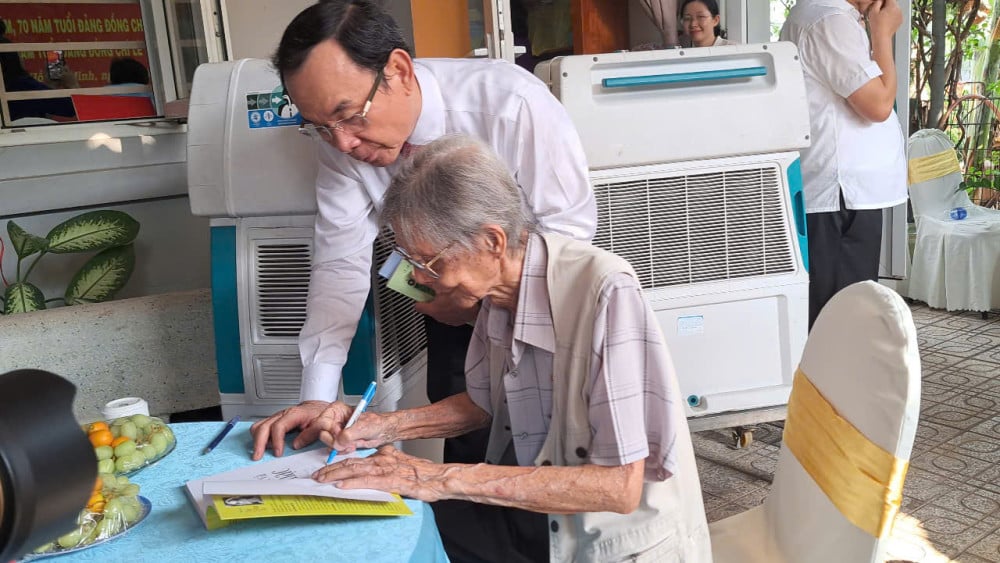
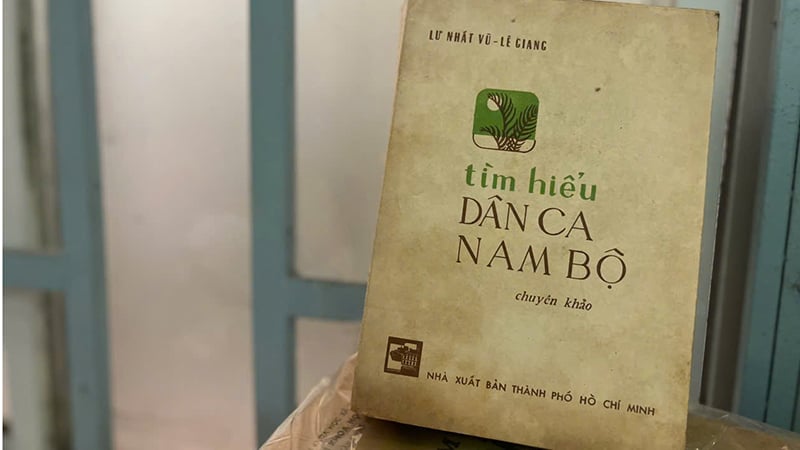
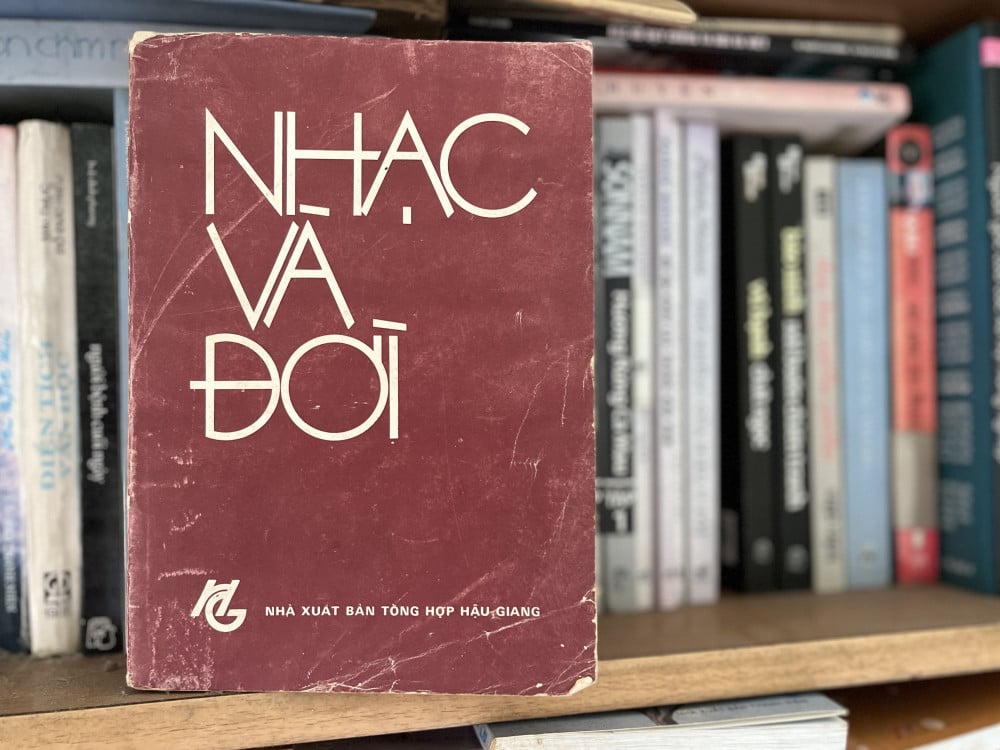


![[Photo] Unique folk games at Chuong Village Festival](https://vstatic.vietnam.vn/vietnam/resource/IMAGE/2025/4/10/cff805a06fdd443b9474c017f98075a4)

![[Photo] Prime Minister Pham Minh Chinh chairs meeting to discuss tax solutions for Vietnam's import and export goods](https://vstatic.vietnam.vn/vietnam/resource/IMAGE/2025/4/10/19b9ed81ca2940b79fb8a0b9ccef539a)
![[Photo] Phuc Tho mulberry season – Sweet fruit from green agriculture](https://vstatic.vietnam.vn/vietnam/resource/IMAGE/2025/4/10/1710a51d63c84a5a92de1b9b4caaf3e5)

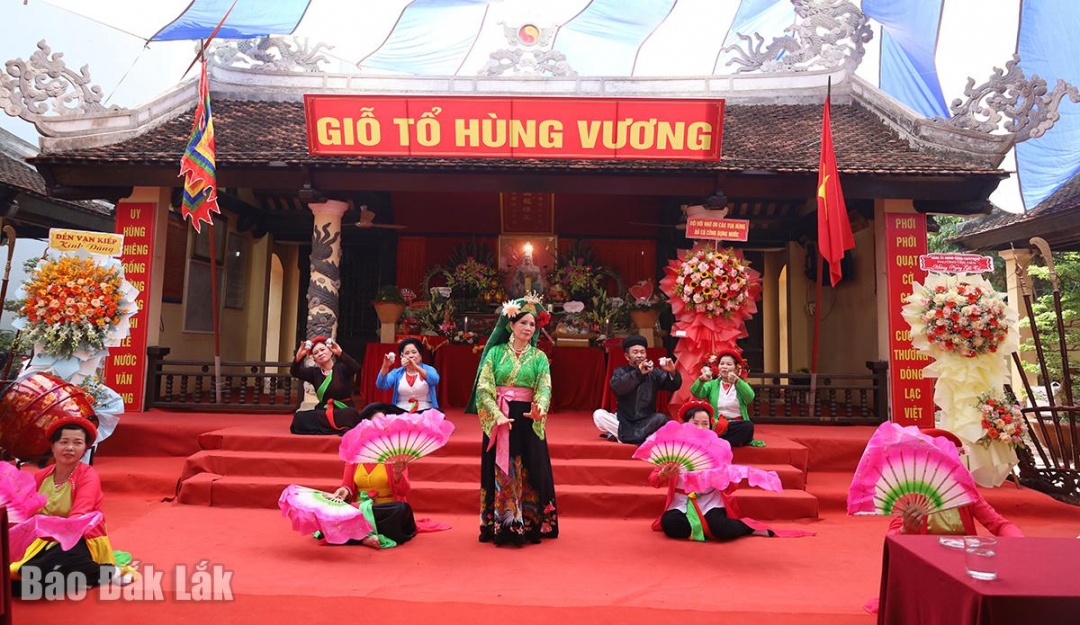

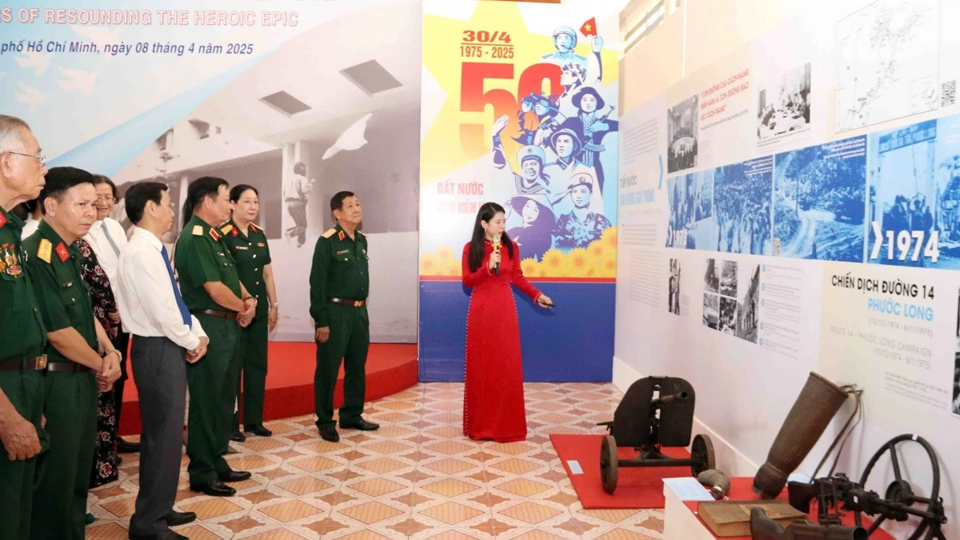
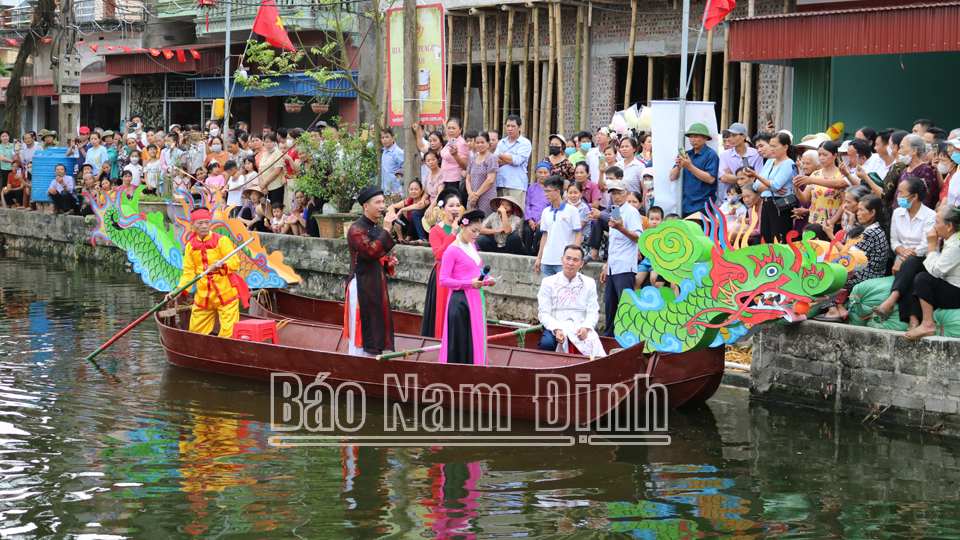
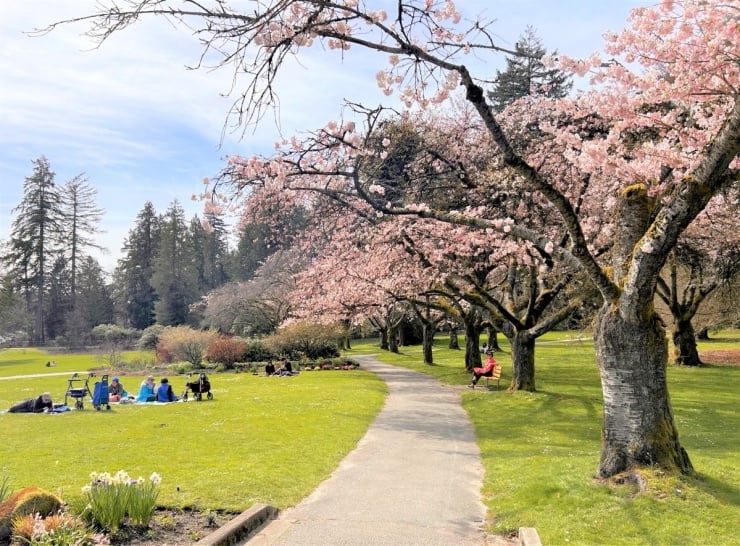




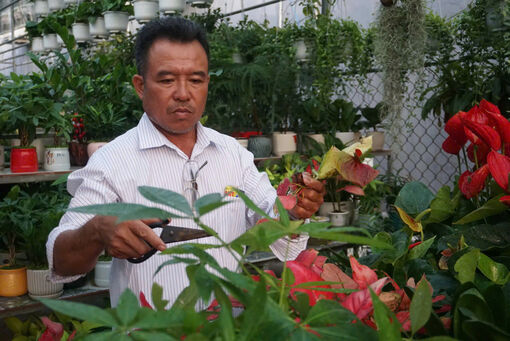

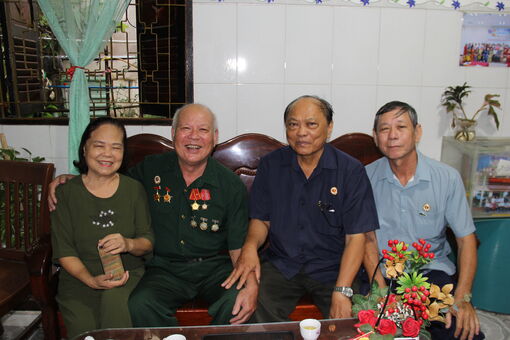



























































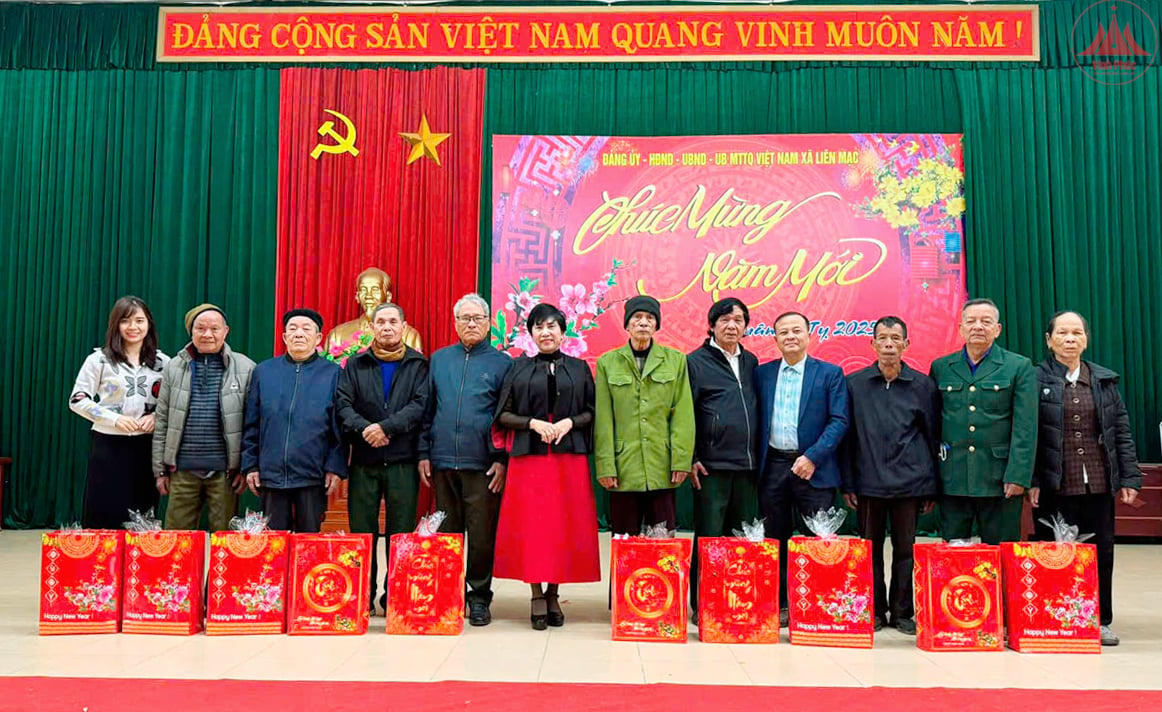








Comment (0)